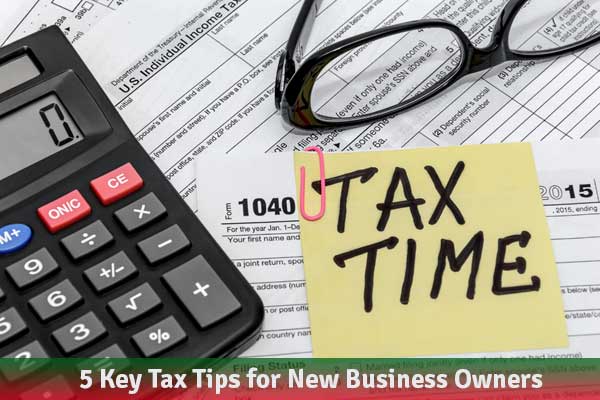Are you a small business owner who has just started a new business? Chances are, you’re excited about branding, marketing, and getting everything set up.
It’s easy to get wrapped up in the more glamorous aspects of entrepreneurship. But there’s another important aspect of business ownership that you can’t overlook: taxes.
Creating a tax plan is an essential part of starting a business. Unfortunately, it can be a daunting and confusing task for many small business owners. Keep reading below to learn more about the top five tax tips that all new business owners should know!
Page of Contents
1. Document Everything
When it comes to taxes, documentation is extremely important. Keep every receipt for tax purposes! Experts suggest creating a separate bank account and credit card for business finances so that you can easily track all of your spendings.
2. Choose the Best Business Entity For You
The business entity that you choose determines how you file your taxes and how much you owe. Business entities that you can choose include partnerships, limited liability companies (LLCs), S corporations, and corporations. The entity that you choose depends on how many people work for you, how many people own your business, and whether or not you have shareholders.
3. Research Tax Breaks
Tax breaks and tax credits can help you save money just for operating your business. For example, you might be eligible for a tax break if you work from a home office, travel for business, or spend money on professional development-related education.
However, it can be overwhelming to parse through the available information if you don’t know exactly what you’re looking for. If you’re confused about the tax breaks you qualify for, consider consulting a professional.
Choosing a tax advisor with expertise in your area of business can help you eliminate confusion.
4. Consider Quarterly Tax Payments
Most small business owners should pay quarterly taxes. If you don’t pay quarterly taxes or underpay throughout the year, you could end up owing a lot of money at the end of the fiscal year. Paying taxes will be easier and you won’t have any unwelcome surprises if you keep track of your quarterly payments.
The IRS has more information about quarterly taxes and tax estimations on its website.
5. Start Preparing Early
Don’t let tax season sneak up on you. The earlier you start preparing, the less stressful the filing process will be. April 15 is the tax deadline for most years.
For quarterly taxes, you should also file a tax return on April 15, September 15, and January 15.
Create Your Tax Plan Today
With the tips laid out above, you should have a good idea of how to make a tax plan that works for you. If you think ahead, stay organized, and know the tax laws that are relevant to you, dealing with taxes will be a breeze. Become an expert business owner by getting your taxes in order today!
For more articles related to business ideas and finance, check out our website. We cover everything from cryptocurrency to business marketing strategies to startup ideas!
